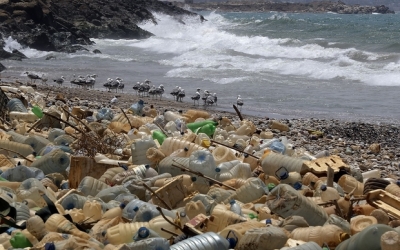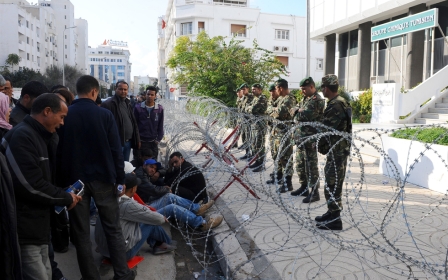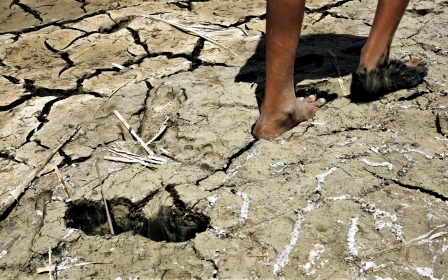Tunisia to abolish single-use plastic bags starting in March, full ban in 2021

Tunisia will ban single-use plastic bags at supermarkets and pharmacies starting next month, before phasing them out completely in 2021, its government has announced.
The first stage of the policy will be implemented on 1 March, when stores will stop issuing plastic bags, according to the ministry of local affairs and environment. By 1 January 2021, all plastic bags will be banned in the country.
The move will make Tunisia one of the nearly 100 countries to abolish single-use plastic bags, in an effort to reduce unnecessary waste and harmful impact on the environment.
Reusable bags with "a thickness of 40 micrometres and a capacity of more than 30 litres" will remain in circulation, the Guardian newspaper reported.
Back in 2016, Tunisia tried to impose a ban on plastic bags but was faced with strong resistance from the industry, which claimed the measure would destroy thousands of jobs.
However, despite the government's failed attempt, a number of businesses got on board with the proposed initiative and started halting the use of single-use plastic bags.
Polluting the Mediterranean
In 2019, the World Wide Fund for Nature (WWF) released an in-depth report on plastic pollution in Tunisia, urging its government to prioritise "improving waste management capacity and monitoring, and encouraging consumers to reduce consumption".
According to the WWF, only 4 percent of plastic waste is recycled in the North African country, while 76 percent is destined for landfill or open dumps - lagging severely behind Tunis' 2016 goal of recycling 70 percent of total plastic waste.
Furthermore, although Tunisia has the fourth-lowest per capita levels of plastic goods consumption in the Mediterranean region, much of its plastic waste flows into the Mediterranean Sea, the WWF warned.
About 80,000 tonnes of plastic waste ends up in Tunisia's environment every year "due to challenges with waste management," it said.
Tunisia's plastic recycling system largely relies on an informal workforce of barbechas - or waste scavengers - who make merely $2 to $12 a day selling the garbage they collect to recycling plants, said International Alert.
The peace-building charity estimates there are 15,000 barbechas in Tunisia, who collect two-thirds of the country's recycled plastic waste.
However, because the work is not formally recognised despite playing a crucial role in the country's waste management, barbechas have poor working conditions and no workers' rights.
An official recognised the challenges Tunisia faced in tackling plastic pollution, as in many other issues following the 2011 revolution that brought democracy to the country and saw the removal of autocrat Zine el-Abidine Ben Ali, who had ruled the country for 23 years.
"Since the revolution, we have had serious difficulty in different areas and different cities with plastic bags, which are small and have been thrown away and disturb the environment," Chebli Hedi, the general director of environment and quality of life at the Ministry of Local Affairs and the Environment in Tunis, told the Guardian.
For the latest initiative, the government had had extensive consultation with unions and businesses, Hedi said, adding that negotiations over next year's wider ban were ongoing.
Plastic pollution is a global environmental problem that no country is exempt from. Experts say that single-use plastic, which contributes to greenhouse gas emissions at every stage of its lifecycle, is polluting oceans and also accelerating climate change.
As many as one trillion single-use plastic bags are used each year, nearly two million each minute, according to the Earth Policy Institute, a US-based environmental organisation.
Middle East Eye propose une couverture et une analyse indépendantes et incomparables du Moyen-Orient, de l’Afrique du Nord et d’autres régions du monde. Pour en savoir plus sur la reprise de ce contenu et les frais qui s’appliquent, veuillez remplir ce formulaire [en anglais]. Pour en savoir plus sur MEE, cliquez ici [en anglais].





